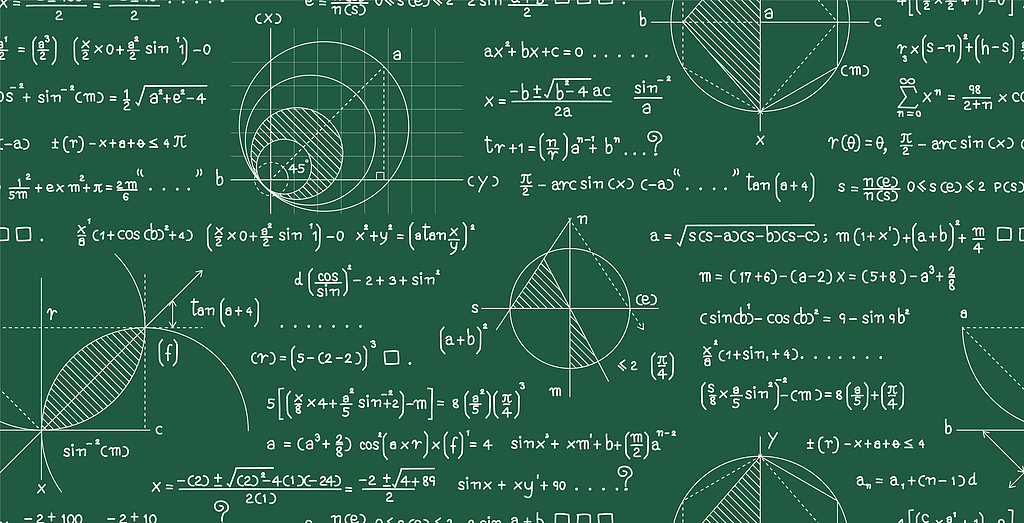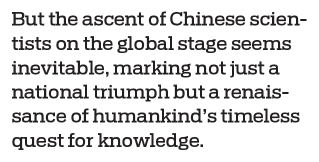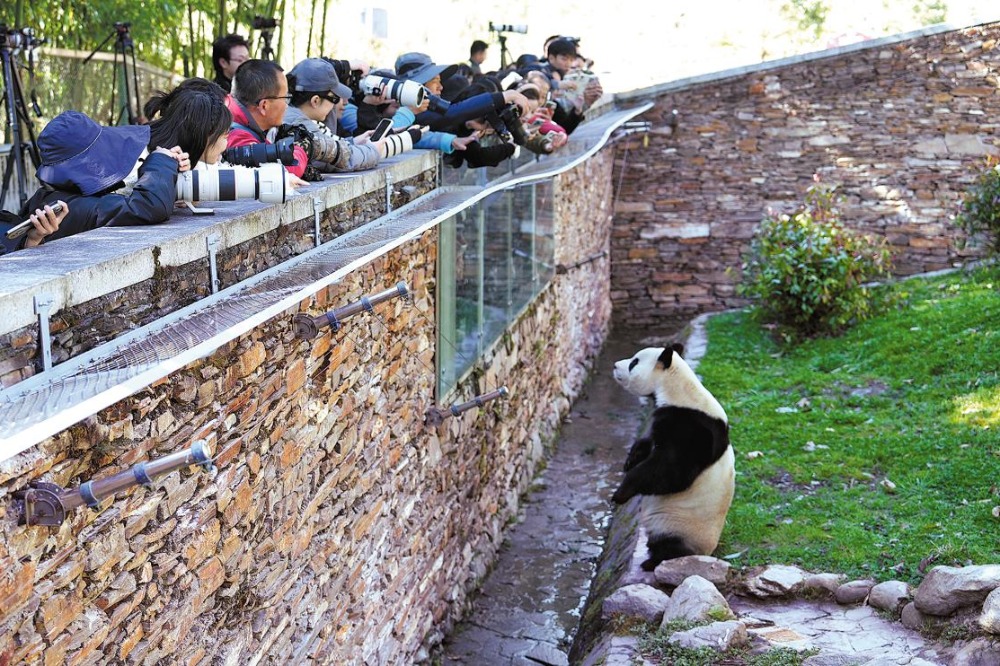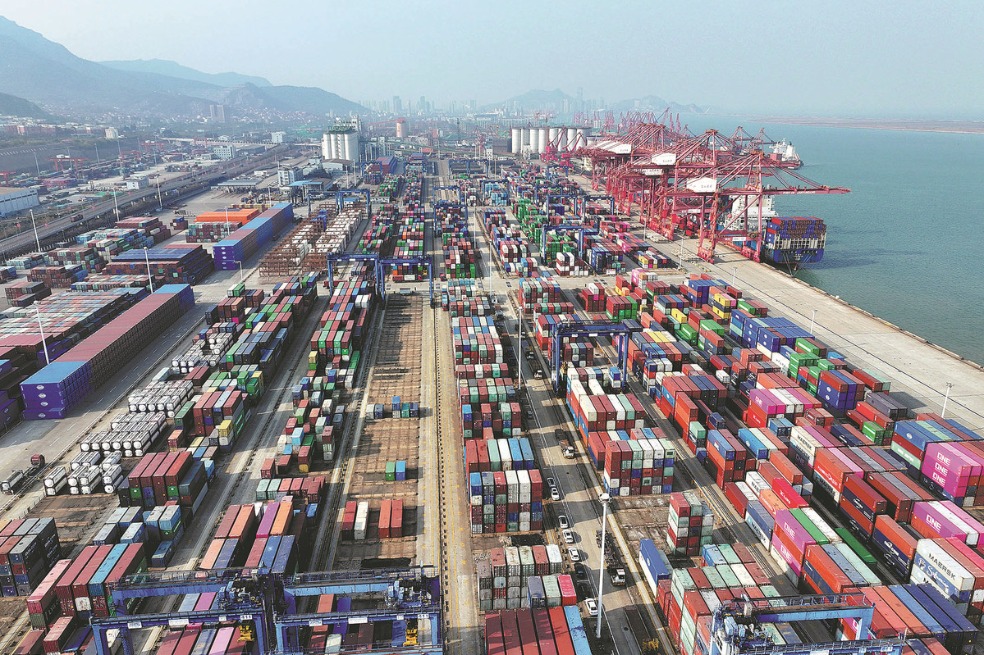Spirit of math beckons golden age of science


That graduates from China's top universities made waves in the global mathematics community by solving long-standing puzzles, and 2025, which was hailed as a milestone for Chinese mathematicians, should be seen more as an aspiration than a celebration. The heightened attention is nevertheless a heartening phenomenon.
Admittedly, it is a triumph of the international community of scholars. The young mathematicians received their undergraduate education in China before pursuing overseas studies, where they achieved groundbreaking results.
Following Wang Yilin's historic win last year as the first Chinese woman to receive the Salem Prize, two studies — co-authored by Wang Hong of New York University, Deng Yu of the University of Chicago and Ma Xiao of the University of Michigan, together with their foreign counterparts — have come to be recognized for proving the three-dimensional Kakeya conjecture and solving the narrow formulation of Hilbert's sixth problem. These breakthroughs reportedly fill gaps in mathematical research, potentially advancing the validation of core conjectures and offering new tools for fluid dynamics.

While Chinese students' dominance in math competitions has become routine news, such accolades are often attributed to exam-oriented training that prioritizes problem-solving practices over deep exploration of principles like the number theory or geometry. Critics argue this approach may stifle critical thinking. As a result, the value of Olympiad math — commendable in itself but often seen as a "stepping stone for college admissions" — has grown increasingly contentious, leading to its gradual decline in popularity.
Zooming out, the broader picture reveals more profound shifts. China's technological development once leaned heavily on applied research, with foundational studies relatively lagging — a pragmatic and inevitable choice during its early reform era. Faced with pressures of economic take-off, the nation prioritized engineering and scaled manufacturing to boost productivity, with resources naturally funneled toward applied technologies.
Today, however, self-reliance in science and technology has become a strategic imperative. China's leadership emphasizes the importance of integrating basic research into top national agendas, recognizing that breakthroughs in core technologies demand progress at their roots. As global competition increasingly focuses on foundational frontiers while the translation cycle for basic research has shortened, vulnerabilities exposed by "chokepoint" technologies like semiconductors have underscored the urgency of overcoming dependence with regard to foundational theoretical frameworks.
Basic research — the wellspring of innovationis now seen as vital for building a sci-tech powerhouse. As Vannevar Bush argued in Science: The Endless Frontier — a landmark in US science policy — 80 years ago, a nation relying on others for foundational knowledge cannot lead. China is heeding this lesson: investment in basic research is rising steadily, with full-time researchers in the field growing with each passing year. The nation's annual output of 5 million STEM college graduates, the world's largest talent pool, further bolsters this shift.
Yet systemic challenges remain. Cultivating a culture that values truth-seeking science requires reforming evaluation systems prone to short-termism and low tolerance for failure. The case of Tu Youyou — whose Nobel-winning artemisinin research endured years of setbacks outside conventional metrics — serves as a reminder. Equally crucial is fostering curiosity-driven education to inspire the youth. As Einstein noted, "Curiosity has its own reason for existing" — a sentiment echoed by Huawei's Ren Zhengfei: "One must endure ten years of cold benches to achieve breakthroughs from zero to one."
Similarly, Chinese mathematician Shing-Tung Yau, a Fields Medalist and a staunch advocate for basic research, asserts: "For China to become a true science powerhouse, it must cultivate scientists who pursue truth for its own sake." Convinced that mathematics is the "foundation of foundations", Yau is reportedly spearheading efforts meant to establish China as a global mathematics hub, including a bid to host the 2030 International Congress of Mathematicians. His vision, that China will soon produce a new generation of world-class mathematicians, may yet be tested.
But the ascent of Chinese scientists on the global stage seems inevitable, marking not just a national triumph but a renaissance of humankind's timeless quest for knowledge.
The author is chief researcher at the China Watch Institute, China Daily.
If you have a specific expertise, or would like to share your thought about our stories, then send us your writings at opinion@chinadaily.com.cn, and comment@chinadaily.com.cn.


































